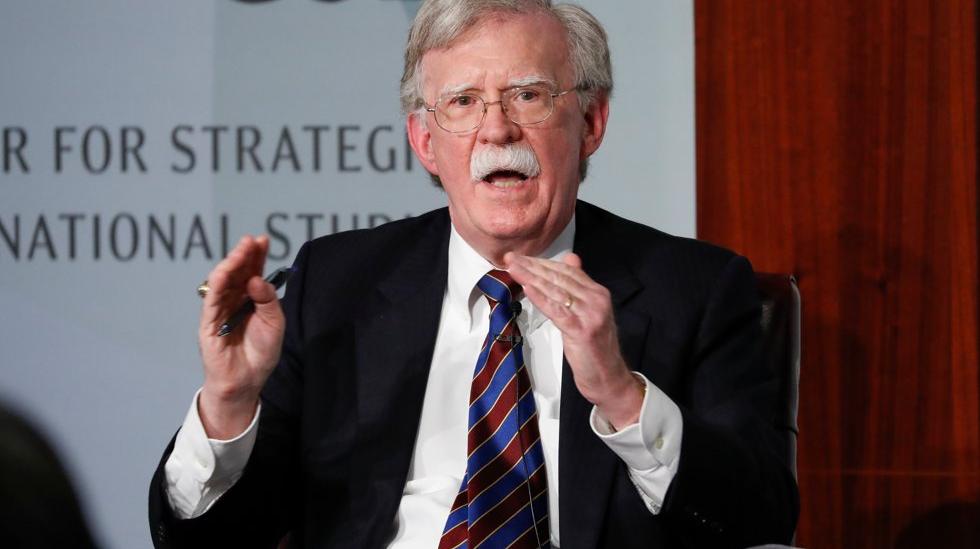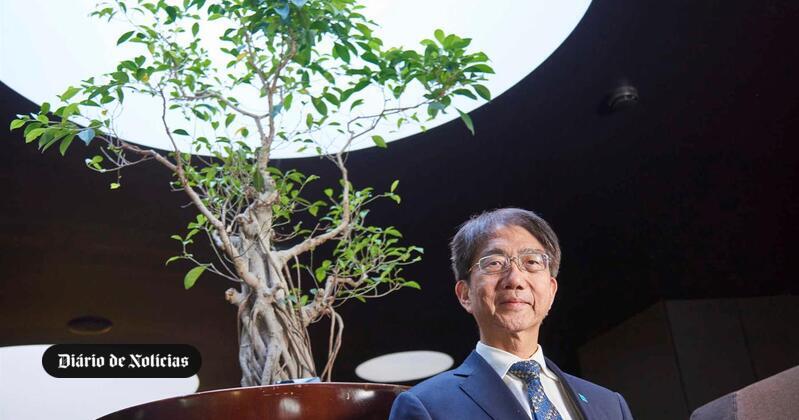How did science develop in China today? China is a great economic power, but it is also an increasingly great scientific and technological power. Can you tell me about the Chinese scientific tradition?
In the history of Chinese civilization, the state made its contributions in the field of science – the compass, gunpowder, etc. Historically, the Industrial Revolution did not start in China, of course, and I think in the last 100 or 200 years, in terms of scientific contributions, the country has not kept pace with the Western world. I think this has something to do with the historical development of China. If the state is not politically stable and more open to the scientific issues of the West and the way in which it has developed scientifically in the past two centuries, it is more complex.
You say that during the last Chinese dynasty, the Qing dynasty, especially after the nineteenth, nineteenth century, did the West become scientifically ahead of China?
Yes, because of the Industrial Revolution. If we read Joseph Needham, a professor at the University of Cambridge, entitled Science and Civilization in China, we get an idea of our ancient contributions to science. During the Qing Dynasty, China at first was very important economically at the global level, but then the dynasty began to close, there was no opening and no changes, and in the West the Industrial Revolution began. Newton and astronomy appeared, the scientific method. Mathematics and physics developed. So, in the last 200 years we can see a great western development. Then, in China, since 1911, already in the republican period, they began to send students to the United States, to Europe, and especially to the United Kingdom, for training. Thus the first famous Chinese scholars of the 20th century were trained in Europe and the United States.
Do you think that after the seventies, with the policy of economic reforms, China returned to competition again in this field?
I think it is not easy to do science in the midst of political and economic instability. I would say that over the past 200 years the Western world has advanced a lot in science and technology, and I don’t think this is open to debate.
But at present, China that has achieved stability, managed to put man in space, is a nuclear power … Do you think that the science of the country is progressing again?
Yes, I think the research in China, in certain areas, has developed a lot. This can be seen in the publications. And it is evident in the infrastructure: the Three Gorges Dam, for example, or our highway network. We have advanced a lot in energy, in high speed transportation. I think we in China solve many of our problems using science and technology. However, I think we also recognize that, as a country, we have to do more basic research and that’s why the Department of Education and the Department of Science and Technology have made a significant investment in basic research in recent years. That’s because they realized that if you want to make any significant progress and lead in science and technology — of course we can send a rocket to the Moon, to Mars, to space missions — you have to invest seriously in basic research. China has high expectations for the future, not only as a power, but also as a very strong country in science and technology. I think it will not be very easy and I think this is not yet fully recognized, it takes a lot of work in the system of education and international exchange and the spirit of free exchange of ideas. All this is important.
Do you think it is necessary for China to develop the science that there are these links with other countries and also this exchange of ideas?
I think science knows no boundaries. I think that is the reason for the strength of the United States. I lived 11 years in the US, trained there and was at the Massachusetts Institute of Technology in Boston. The strength of the United States is free exchange and the best brains in the world go there, because science has no boundaries and it brings people together. It is the best policy to encourage scientific research. So I think China is investing a lot of money in basic research. At present, in the Greater Bay Area – Canton – Hong Kong – Macau, etc., there are nine cities and two special administrative regions – we conduct basic research related to the contribution to innovation, that is, it is fundamental research, but also with a purpose. So there’s a bit of integration here, as the Greater Bay Area is the second largest economy in the world and is set to be Asia’s Silicon Valley.
Can we say that the Greater Bay Area is the region where there is more and more advanced science in China?
I wouldn’t say that. I think this is where China would like to build an international center for technological innovation. They already have a center in Beijing and in Shanghai as well, I think now they want to move forward in the Greater Bay Area.
Macau was the first point of contact with the Europeans, and Hong Kong was also a bridge between West and East, although it was created in a more dramatic way. Does that make this part of China, the estuary of the Pearl River, more open to innovation?
If we look at history, Southern China, especially Guangzhou, has always been the cradle of innovative ideas and wonderful people. Many first-generation students come from southern China and have an adventurous spirit in a coastal region with many ports such as Hong Kong and Macau. There is always a spirit of free will, partly out of necessity, I think, and a willingness to venture into the new world. There is a spirit of migration.
Does the “one country, two systems” policy applied in Hong Kong since 1997 and in Macau since 1999 also help this desire to emigrate and connect with the outside world?
I think that at the highest level in the country they take the “one country, two systems” policy very seriously.
Even despite the recent events in Hong Kong – the protests – are they still there?
yes. We still have a large proportion of international students at our universities in the region. We’ll get there in Macau, as higher education is a modern reality in the territory – ten years old – unlike Hong Kong, where it has been for 50 years.
Is your university able to attract students from elsewhere?
Yes, we attract students from Hong Kong and all over China. We belong to a non-profit organization and attract very good students. We have an international university under the Portuguese constitution and we teach in English.
Is there still a Portuguese atmosphere in Macau?
I have Portuguese friends. Sort of yes, in terms of language, as the official languages are Chinese and Portuguese and not English. I use English in my meetings, but in terms of government and official documents, Portuguese is still used, for example in laws, and the lawyers I know in Macau are Portuguese.
Are there Portuguese professors and Portuguese students at your university?
There are some Portuguese on the staff, but not many.
Did you visit Portugal to connect with Portuguese universities?
yes. It’s my first time to go to Portugal to visit universities. I have been here once, many years ago, to do a workshop, but this is the first time I have come to visit universities. I have in my profession many colleagues in Portugal. This time I was in Spain, in Granada, to chair a world conference of the International Society for Aquatic Environment Engineering and Research, of which I am the first Chinese president. I had to come because we haven’t had a conference for over two years due to the coronavirus. I stayed there for a week and took the opportunity to visit Portugal. I was in Évora, Lisbon – I was in the Higher Polytechnic – Coimbra and Porto. It is an opportunity to learn and open up. The Chinese Minister of Science and Technology was in Macau last year and was very frank in expressing his wish and request for Macao to enhance the exchange of scientific and technological research with Portugal. It never happened, but I feel I can contribute, as I have friends in Lisbon, Évora and Coimbra. Portugal has changed a lot in the last 10 years in the field of science and technology.
Portugal was important to science in China in the 19th century. sixteen? When the Portuguese navigators got there, was there anything new that China learned from the West?
Yes maps for example. One must not forget Matteo Ricci.
Ricci, an Italian Jesuit, created the first Sino-Portuguese dictionary. Was your first contact with Western culture impressive?
Yes Yes. 500 years ago.
Is there a memory of this in China?
Yes I think so. It’s mentioned in the books I’ve read. Since covid, you can’t go to Hong Kong, where I’ve spent most of my career, and I wander around a lot in Macau, which is like a museum city. It has been well preserved because nothing was destroyed by the war.
Is it better preserved than Hong Kong?
yes. Because she did not go through the war. All Portuguese buildings remain.
Do you feel like you are in Europe a bit?
Yes Yes. For example, in Macau half of the secondary schools are Catholic. So there is a great tradition. Before coming, I gave a lecture at a school where I met the Jesuit president in Macau. So I think the “one country, two systems” policy is taken very seriously by China. In terms of science and technology, the time of Matteo Ricci brought us maps.
Has China suddenly discovered that there is so much of the world?
Yes Yes. As well as mathematics and astronomy. But, of course, in the eighteenth, nineteenth and twentieth centuries, science and technology developed unusually in the West.
But is China now finally catching up?
It’s catching up, yes, but I think it also recognizes that we need basic research and that it can’t be rushed.
Sometimes you have to wait for results…
Yes, and more international cooperation is also needed, although now, with the geopolitical situation we are witnessing, it is becoming more difficult. In my opinion, Hong Kong and Macau have always been a bridge between West and East. Historically, I think Macau, in general, has a better understanding of Chinese and Chinese politics than Hong Kong.
Does it help you in your job as Dean of Macau University of Science and Technology?
yes. There is a link and we can work better, as there is more potential for exchange.
Do you think that the development of science depends on cooperation between nations?
Clear. In Macau, our university’s policy is very clear in its commitment to internationalization, diversity and cooperation between countries. From this trip, I took many ideas to enhance this.

“Wannabe internet buff. Future teen idol. Hardcore zombie guru. Gamer. Avid creator. Entrepreneur. Bacon ninja.”







More Stories
Fun Science: Spark kids' environmental curiosity with fun science experiments
CER II teams promote fun activities with patients to raise awareness about Parkinson's disease – Barreras City Hall
A physicist explains the science behind the post-apocalyptic world in the new series